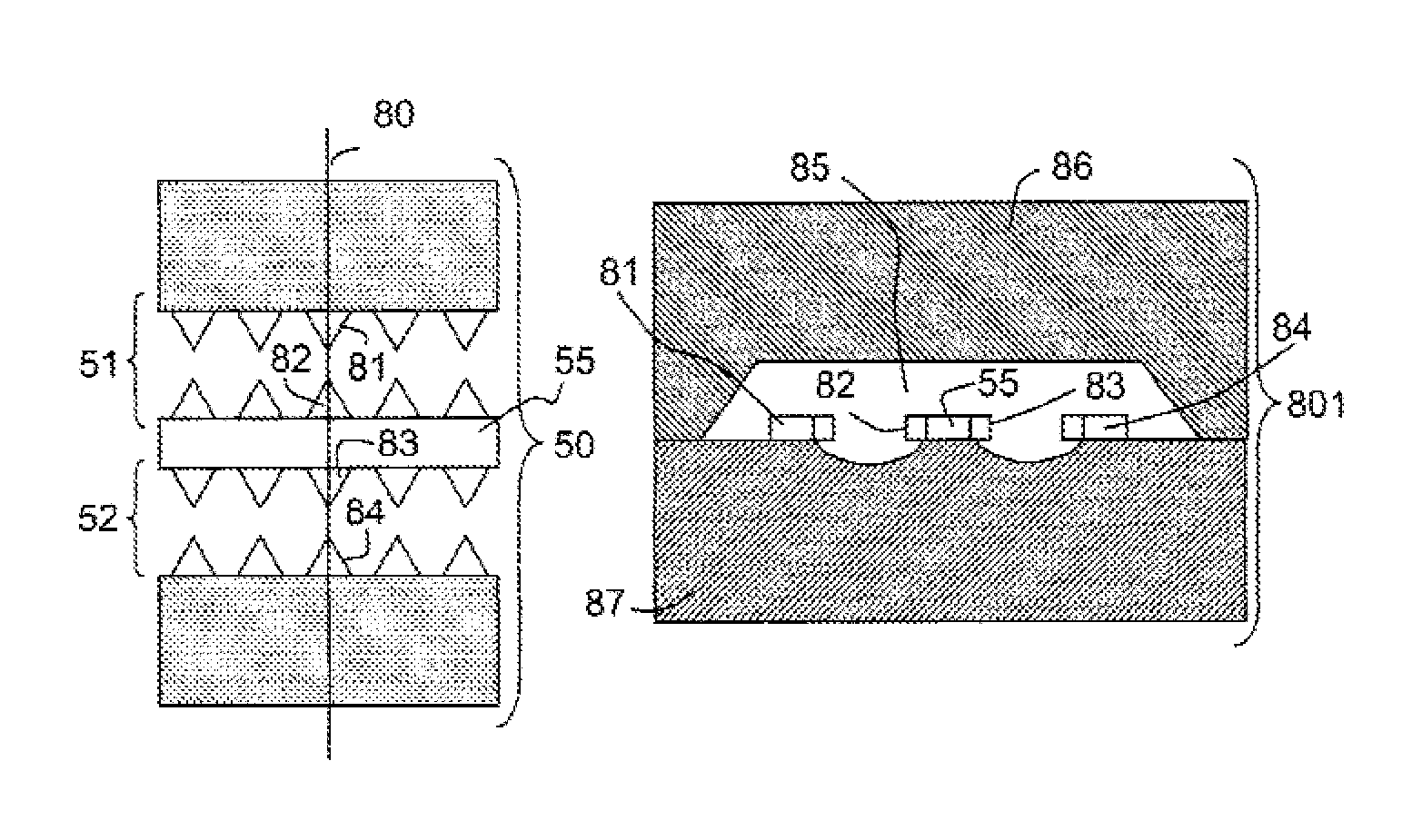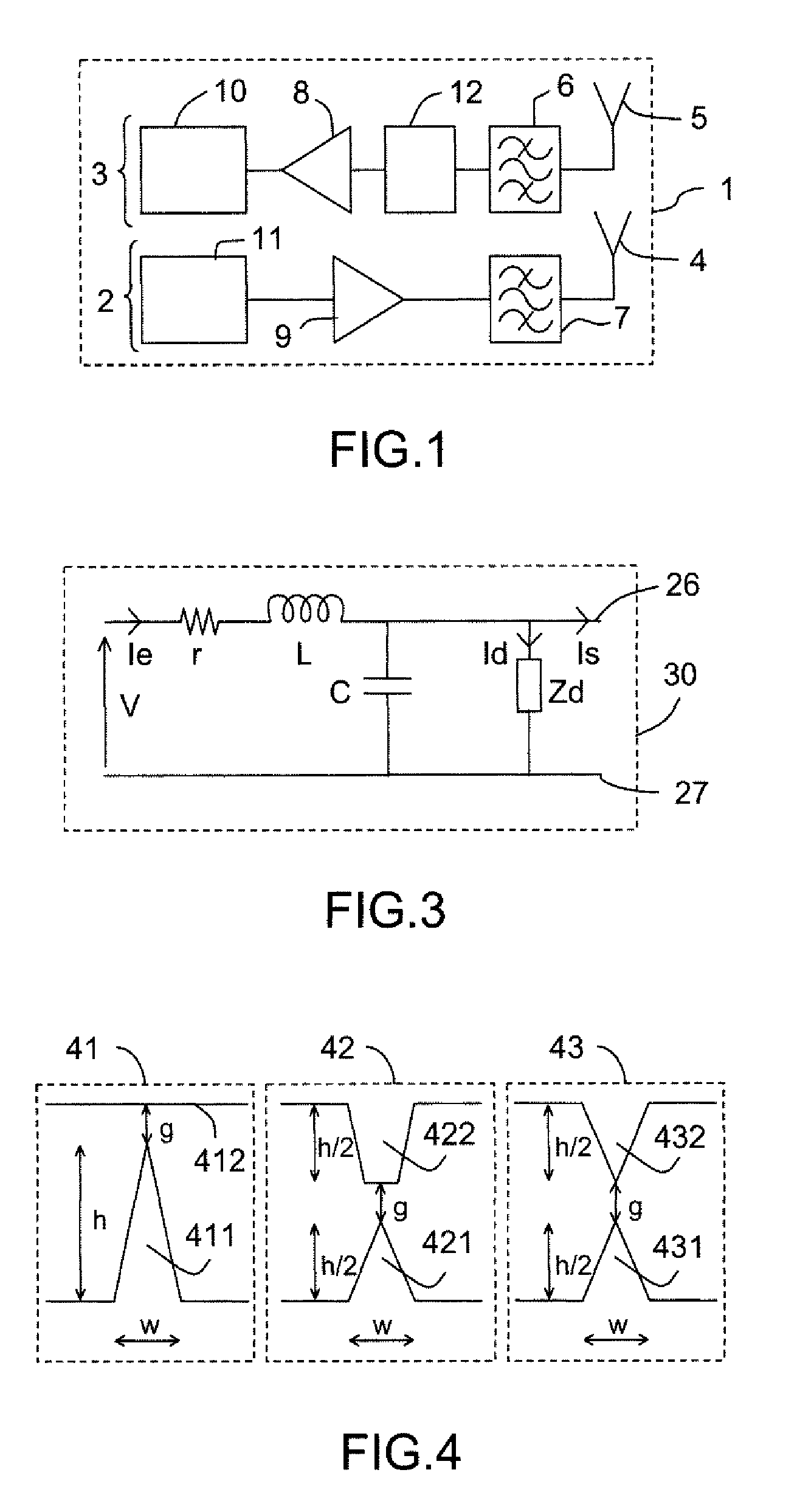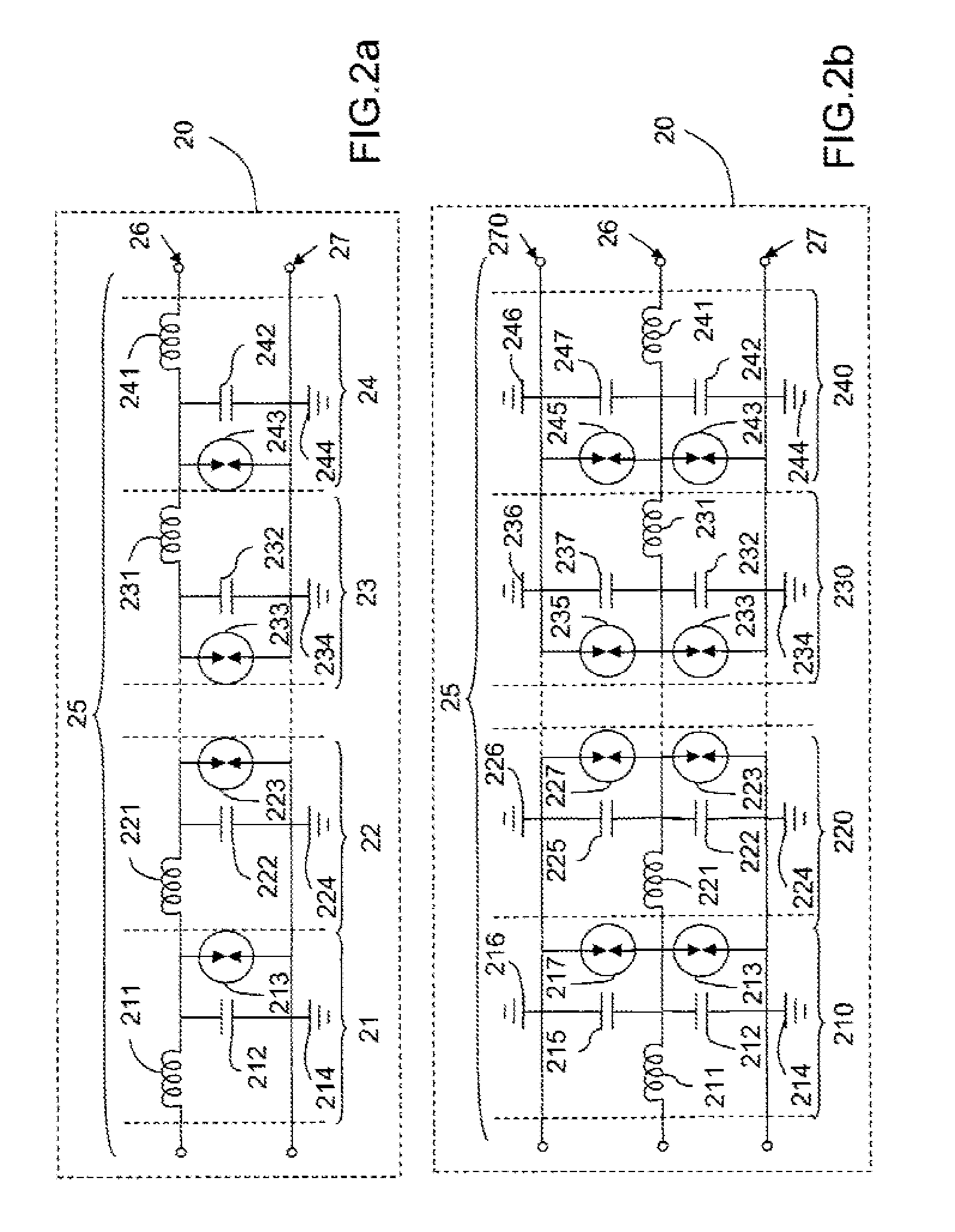Electromagnetic signal power limiter and method of designing the power limiter
a technology of power limiter and electromagnetic signal, which is applied in the direction of limiting amplitude without controlling loop, limiting amplitude, electrical apparatus, etc., can solve the problems of goniometry and/or signal source locating processing operations, no longer being used by digital processing subsystems, and distortion of signals
- Summary
- Abstract
- Description
- Claims
- Application Information
AI Technical Summary
Benefits of technology
Problems solved by technology
Method used
Image
Examples
Embodiment Construction
[0116]FIG. 1 represents a known radiofrequency transmission subsystem 1. The radiofrequency transmission subsystem 1 notably comprises a first transmission subsystem 2 and a second reception subsystem 3. Each subsystem, transmission 2 or reception 3, comprises:[0117]an antenna 4, 5;[0118]a filter 6, 7;[0119]an amplifier 8, 9.
The transmission subsystem 2 comprises a transmitter 11. The reception subsystem 3 comprises a receiver 10. A limiter 12 is, for example, placed on the reception subsystem 3 between a first filter 6 and a first amplifier 8. The limiter 12 can, in another embodiment, be placed between the antenna 5 and the first filter 6. The limiter 12, duly placed on the reception subsystem 3, can be used to avoid saturation or disabling, notably of the first amplifier 8 and of the receiver 10.
[0120]FIGS. 2a and 2b represent schematic diagrams of a distributed limiter 20.
[0121]FIG. 2a represents in particular a distributed limiter 20, suitable for an implementation using a micr...
PUM
 Login to View More
Login to View More Abstract
Description
Claims
Application Information
 Login to View More
Login to View More - R&D
- Intellectual Property
- Life Sciences
- Materials
- Tech Scout
- Unparalleled Data Quality
- Higher Quality Content
- 60% Fewer Hallucinations
Browse by: Latest US Patents, China's latest patents, Technical Efficacy Thesaurus, Application Domain, Technology Topic, Popular Technical Reports.
© 2025 PatSnap. All rights reserved.Legal|Privacy policy|Modern Slavery Act Transparency Statement|Sitemap|About US| Contact US: help@patsnap.com



